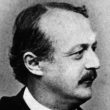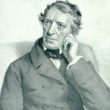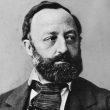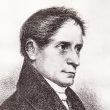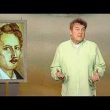| 28 November 2020 |
|
Every afternoon, as they were coming from school, the children used to go and play in the Giant’s garden.
It was a large lovely garden, with soft green grass. Here and there over the grass stood beautiful flowers like stars, and there were twelve peach-trees that in the spring-time broke out into delicate blossoms of pink andpearl, and in the autumn bore rich fruit. The birds sat on the trees and sang so sweetly that the children used tostop their games in order to listen to them. “How happy we are here!” they cried to each other.
One day the Giant came back. He had been to visit his friend the Cornish ogre, and had stayed with him forseven years. After the seven years were over he had said all that he had to say, for his conversation was limited,and he determined to return to his own castle. When he arrived he saw the children playing in the garden.
“What are you doing here?” he cried in a very gruff voice, and the children ran away.
“My own garden is my own garden,” said the Giant; “any one can understand that, and I will allow nobody toplay in it but myself.” So he built a high wall all round it, and put up a notice-board.
WILL BE
PROSECUTED
He was a very selfish Giant.
The poor children had now nowhere to play. They tried to play on the road, but the road was very dusty andfull of hard stones, and they did not like it. They used to wander round the high wall when their lessons wereover, and talk about the beautiful garden inside. “How happy we were there,” they said to each other.
Then the Spring came, and all over the country there were little blossoms and little birds. Only in the gardenof the Selfish Giant it was still winter. The birds did not care to sing in it as there were no children, and the treesforgot to blossom. Once a beautiful flower put its head out from the grass, but when it saw the notice-board itwas so sorry for the children that it slipped back into the ground again, and went off to sleep. The only peoplewho were pleased were the Snow and the Frost. “Spring has forgotten this garden,” they cried, “so we will livehere all the year round.” The Snow covered up the grass with her great white cloak, and the Frost painted all thetrees silver. Then they invited the North Wind to stay with them, and he came. He was wrapped in furs, and heroared all day about the garden, and blew the chimney-pots down. “This is a delightful spot,” he said, “we mustask the Hail on a visit.” So the Hail came. Every day for three hours he rattled on the roof of the castle till hebroke most of the slates, and then he ran round and round the garden as fast as he could go. He was dressed ingrey, and his breath was like ice.
“I cannot understand why the Spring is so late in coming,” said the Selfish Giant, as he sat at the window andlooked out at his cold white garden; “I hope there will be a change in the weather.
”But the Spring never came, nor the Summer. The Autumn gave golden fruit to every garden, but to theGiant’s garden she gave none. “He is too selfish,” she said. So it was always Winter there, and the North Wind,and the Hail, and the Frost, and the Snow danced about through the trees.
One morning the Giant was lying awake in bed when he heard some lovely music. It sounded so sweet to hisears that he thought it must be the King’s musicians passing by. It was really only a little linnet singing outside hiswindow, but it was so long since he had heard a bird sing in his garden that it seemed to him to be the mostbeautiful music in the world. Then the Hail stopped dancing over his head, and the North Wind ceased roaring,and a delicious perfume came to him through the open casement. “I believe the Spring has come at last,” said the Giant; and he jumped out of bed and looked out.
What did he see?
He saw a most wonderful sight. Through a little hole in the wall the children had crept in, and they weresitting in the branches of the trees. In every tree that he could see there was a little child. And the trees were soglad to have the children back again that they had covered themselves with blossoms, and were waving their armsgently above the children’s heads. The birds were flying about and twittering with delight, and the flowers werelooking up through the green grass and laughing. It was a lovely scene, only in one corner it was still winter. Itwas the farthest corner of the garden, and in it was standing a little boy. He was so small that he could not reachup to the branches of the tree, and he was wandering all round it, crying bitterly. The poor tree was still quite covered with frost and snow, and the North Wind was blowing and roaring above it. “Climb up! little boy,” saidthe Tree, and it bent its branches down as low as it could; but the boy was too tiny.
And the Giant’s heart melted as he looked out. “How selfish I have been!” he said; “now I know why theSpring would not come here. I will put that poor little boy on the top of the tree, and then I will knock down thewall, and my garden shall be the children’s playground for ever and ever.” He was really very sorry for what hehad done.
So he crept downstairs and opened the front door quite softly, and went out into the garden. But when thechildren saw him they were so frightened that they all ran away, and the garden became winter again. Only thelittle boy did not run, for his eyes were so full of tears that he did not see the Giant coming. And the Giant stoleup behind him and took him gently in his hand, and put him up into the tree. And the tree broke at once intoblossom, and the birds came and sang on it, and the little boy stretched out his two arms and flung them roundthe Giant’s neck, and kissed him. And the other children, when they saw that the Giant was not wicked anylonger, came running back, and with them came the Spring. “It is your garden now, little children,” said theGiant, and he took a great axe and knocked down the wall. And when the people were going to market at twelveo’clock they found the Giant playing with the children in the most beautiful garden they had ever seen.
All day long they played, and in the evening they came to the Giant to bid him good-bye.
“But where is your little companion?” he said: “the boy I put into the tree.” The Giant loved him the bestbecause he had kissed him.
“We don’t know,” answered the children; “he has gone away.”
“You must tell him to be sure and come here to-morrow,” said the Giant. But the children said that they didnot know where he lived, and had never seen him before; and the Giant felt very sad.
Every afternoon, when school was over, the children came and played with the Giant. But the little boy whomthe Giant loved was never seen again. The Giant was very kind to all the children, yet he longed for his first littlefriend, and often spoke of him.
“How I would like to see him!” he used to say.
Years went over, and the Giant grew very old and feeble. He could not play about any more, so he sat in ahuge armchair, and watched the children at their games, and admired his garden.
“I have many beautiful flowers,” he said; “but the children are the most beautiful flowers of all.”
One winter morning he looked out of his window as he was dressing. He did not hate the Winter now, for heknew that it was merely the Spring asleep, and that the flowers were resting.
Suddenly he rubbed his eyes in wonder, and looked and looked. It certainly was a marvellous sight. In thefarthest corner of the garden was a tree quite covered with lovely white blossoms. Its branches were all golden,and silver fruit hung down from them, and underneath it stood the little boy he had loved.
Downstairs ran the Giant in great joy, and out into the garden. He hastened across the grass, and came near tothe child. And when he came quite close his face grew red with anger, and he said, “Who hath dared to woundthee?” For on the palms of the child’s hands were the prints of two nails, and the prints of two nails were on thelittle feet.
“Who hath dared to wound thee?” cried the Giant; “tell me, that I may take my big sword and slay him.”
“Nay!” answered the child; “but these are the wounds of Love.”“Who art thou?” said the Giant, and a strange awe fell on him, and he knelt before the little child.
And the child smiled on the Giant, and said to him, “You let me play once in your garden, to-day you shallcome with me to my garden, which is Paradise.”
And when the children ran in that afternoon, they found the Giant lying dead under the tree, all covered withwhite blossoms.
| 30 Dezember 2018 |
|
Walt Whitman (1819 – 1892)
Ich hörte, dass ihr wünscht,
Dass ich euch dies Rätsel, die neue Welt, erkläre.
Amerika und seine athletische Demokratie!
So sende ich euch denn meine Gedichte,
Damit ihr in ihnen schaut,
Wonach ihr verlangt.
Denn in euch allen,
Pulst Leben, Stolz, Liebe,
Genau wie in mir.
So seien Euch meine Lieder geweiht.
Walt Whitman (1819 – 1892)
Ich feiere mich selbst und singe mich selbst.
Doch ich singe auch über Demokratie und die Vielen.
Denn jedes Atom, das mir gehört, es gehört ja auch dir.
Und was ich mir nehme, das sollst auch du dir nehmen.
Ich schlendre dahin und lad meine Seele zu Gast.
Ich neige mich, schlendre behaglich dahin,
Einen Halm grünen Sommergrases betrachtend.
Ich singe das Leben, unermesslich in Leidenschaft,
Pulsschlag und Kraft, heiter zu freiester Tat,
Geformt nach Gottes Gesetz.
Ich singe das Weibliche ebenso wie ich das Männliche singe.
Ich singe den heutigen, singe den neuen, den amerikanischen Menschen.
Walt Whitman (1819 – 1892)
Ihr Leibeigenen, die ihr von Schweiß oder Blut trieft!
Ihr Elenden, verachtet selbst vom Niedrigsten der anderen!
Du zwerghafter Kamtschakale, Grönländer, Lappe!
Du Australneger, der du nackt, roh, schmutzig, mit vorragender Lippe, schleichend deine
Nahrung suchst!
Du Kaffer, Berber, Sudanese!
Du hagerer, ungeschlachter, unwissender Beduine!
Du seuchenbehaftetes Gewimmel in Madras, Nanking, Kabul, Kairo!
Du umnachteter Nomade von Amazonien!
Du Patagonier! Du Fidschi-Insulaner!
Ich ziehe keinen dem andern vor!
Ich sage kein Wort gegen euch dort hinten, wo ihr jetzt steht!
Ihr werdet zur richtigen Zeit vorwärts und an meine Seite kommen!
Ich glaube, irgendein göttlicher Einfluss hat mich euch gleichgestellt.
Auf der Halbinsel, hier in Manahatta,
Steh ich, auf dem hohen Felsen New York,
Um von dort auszurufen: Salut au monde! – Welt sei gegrüßt!
Zu euch allen in Amerikas Namen.
Senkrecht heb ich die Hand empor, gebe das Signal,
Für alle Orte und Wohnungen der Menschen.
Walt Whitman (1819 – 1892)
Our fearful trip is done.
The ship has weathered every rack,
The prize we sought is won.
O Captain! My Captain!
Rise up and hear the bells.
Rise up – for you the flag is flung –
For you the bugle trills.
My Captain does not answer,
His lips are pale and still.
My father does not feel my arm,
He has no pulse nor will.
The ship is anchored safe and sound,
Its voyage closed and done.
From fearful trip, the victor ship,
Comes in with object won.
Exult, o shores, and ring, o bells!
But I, with mournful tread,
Walk the deck my Captain lies,
Fallen cold and dead.
Übersetzung von Ferdinand Freiligrath
O Kapitän! Mein Kapitän!
Gefahr und Fahrt ist aus.
Das Schiff besiegte Sturm und Riff
Und bringt den Sieg nach Haus.
O Kapitän! Mein Kapitän!
Steh auf, vernimm die Glocken!
Steh auf! Für dich Trompetenschall,
Der Fahnen frohes Locken!
Mein Kapitän gibt Antwort nicht,
Sein Mund ist fahl und stille.
Mein Vater fühlt nicht meinen Arm,
Ihm stocken Puls und Wille.
Das Schiff vor Anker gut und fest.
Die fahrt getan und aus.
Trotz Not und Sturm, das Siegerschiff
Bringt den Preis nach Haus.
Ach, jauchzt nur, Ufer! Glocken, schallt!
Doch ich, in Schmerz und Not,
Geh noch auf Deck, wo mein Kapitän liegt,
Gefallen, kalt und tot.


